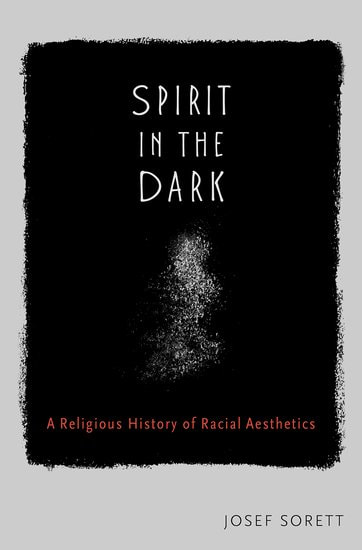L'Rain and the Spiritual in the Secular
|
|
|
Endless Layers of Vocal Harmony Synchronicity and Catharsis |
Spirituality, Church Music and Wonderment |
The Spiritual in the Secular
appreciating Taja Cheeks "L'Rain" with help from Process Theology
I enjoy listening to Taja Cheek's L'Rain. And, like her, I hear a good bit of spirituality in it: in its sounds and also in the album cover.
The modern idea of “the secular” is partly an invention of European Protestantism, developed to heighten a putative dichotomy between the “religious” and the “secular.” Here the notion of religion means something like Protestant religion with its emphasis on belief, scripture, and individual salvation through faith. But when we study the world’s religions – including African, religions, Afro-Caribbean traditions, and the religions of marginalized peoples, including people of color – we realize that this notion of religion as isolated from the secular is a uniquely white and Protestant idea. To be sure, this idea can be internalized by African Americans. But what was truly happening African church, and the many kinds of music that emerged from it, could not easily be contained within the dichotomy. Scholars recognize that black “religion” is like a river that flows into and from what others might call the secular. It is, at the very least, spiritual even as it is secular. It likewise follows that explorations of spirituality within the ostensibly secular have a particular and special role to play. They highlight the illusion of the dichotomy. So what is “spiritual” in the music of L’Rain? It is the moods communicated in the music itself, lamentation and wonderment, for example, and also the very process of experimentation and mixing things from, and into, fragments. You hear the process in the outcome, that is, in the music of her debut album. And this process of mixing, this openness to novelty, this combining of the many into one is, from the perspective of process theology, likewise spiritual – as spiritual as lamentation and wonderment. It is an ongoing act of the imagination. This ongoing activity is one way that human beings from all walks of life respond to the ongoing lure of a cosmic force, forever connecting things in new way, yet ever holding all that is given in a great love: a love of what was, what is, and what can be. We cannot help but think that Taja Cheek was in touch with this spirit. Her experimental music is part of the outcome, itself an act of faith. And there is something true to black aesthetics in all of this, which is itself a wholesale rejection of sacred-secular divides. It seems to me that Taja Cheek's mother -- Lorraine -- would be very proud.
-- Jay McDaniel, editor of Open Horizons
appreciating Taja Cheeks "L'Rain" with help from Process Theology
I enjoy listening to Taja Cheek's L'Rain. And, like her, I hear a good bit of spirituality in it: in its sounds and also in the album cover.
The modern idea of “the secular” is partly an invention of European Protestantism, developed to heighten a putative dichotomy between the “religious” and the “secular.” Here the notion of religion means something like Protestant religion with its emphasis on belief, scripture, and individual salvation through faith. But when we study the world’s religions – including African, religions, Afro-Caribbean traditions, and the religions of marginalized peoples, including people of color – we realize that this notion of religion as isolated from the secular is a uniquely white and Protestant idea. To be sure, this idea can be internalized by African Americans. But what was truly happening African church, and the many kinds of music that emerged from it, could not easily be contained within the dichotomy. Scholars recognize that black “religion” is like a river that flows into and from what others might call the secular. It is, at the very least, spiritual even as it is secular. It likewise follows that explorations of spirituality within the ostensibly secular have a particular and special role to play. They highlight the illusion of the dichotomy. So what is “spiritual” in the music of L’Rain? It is the moods communicated in the music itself, lamentation and wonderment, for example, and also the very process of experimentation and mixing things from, and into, fragments. You hear the process in the outcome, that is, in the music of her debut album. And this process of mixing, this openness to novelty, this combining of the many into one is, from the perspective of process theology, likewise spiritual – as spiritual as lamentation and wonderment. It is an ongoing act of the imagination. This ongoing activity is one way that human beings from all walks of life respond to the ongoing lure of a cosmic force, forever connecting things in new way, yet ever holding all that is given in a great love: a love of what was, what is, and what can be. We cannot help but think that Taja Cheek was in touch with this spirit. Her experimental music is part of the outcome, itself an act of faith. And there is something true to black aesthetics in all of this, which is itself a wholesale rejection of sacred-secular divides. It seems to me that Taja Cheek's mother -- Lorraine -- would be very proud.
-- Jay McDaniel, editor of Open Horizons
Spirit in the Dark
|
Reviews"Spirit in the Dark is a richly textured and intellectually sophisticated text that expands on the range and the nature of Black religio-cultural and theological discourse in the US... Sorett deserves all the plaudits he has received for creating such an ambitious and highly intelligent and perceptive piece of work that rewards careful attention and scholarly engagement." -- Anthony G. Reddie (The Methodist Church and University of South Africa) |
